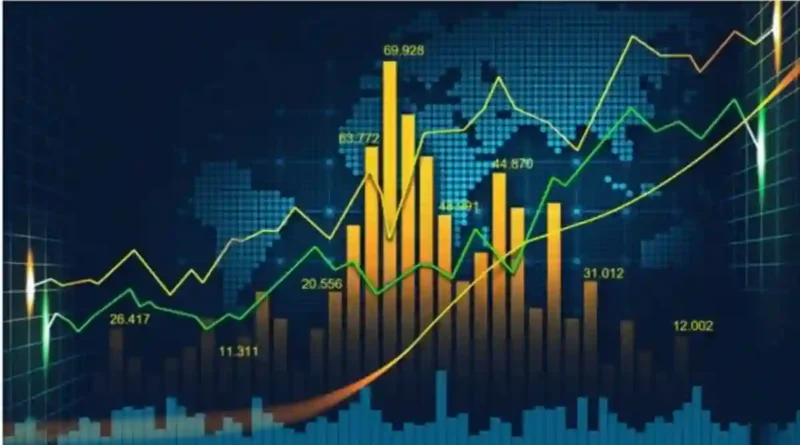Exploring the Potential of Fuzzy Logic in Forex Robot Trading Systems
In the intricate landscape of forex trading, where uncertainty and complexity reign supreme, traders are constantly seeking innovative approaches to navigate through the volatility and unpredictability of the market. Among the arsenal of tools available, fuzzy logic has emerged as a powerful technique for capturing and modeling the imprecise and uncertain nature of market data. In this exploration, we delve into the potential of fuzzy logic in forex robot trading systems, uncovering how it enables traders to make more nuanced and adaptive trading decisions in the dynamic forex market.
Understanding Fuzzy Logic:
Fuzzy logic is a branch of artificial intelligence (AI) that deals with reasoning and decision-making under uncertainty and imprecision. Unlike classical binary logic, which operates on the principle of true or false, fuzzy logic allows for degrees of truth between 0 and 1, enabling the representation of vague or ambiguous concepts. Fuzzy logic is particularly well-suited for modeling complex systems with uncertain or incomplete information, making it an ideal tool for tackling the inherent uncertainties of the forex market.
The Potential of Fuzzy Logic in Forex Trading Systems:
Fuzzy logic offers several advantages for forex trading systems, including:
- Handling Linguistic Variables: The forex market is inherently driven by qualitative factors such as market sentiment, economic outlook, and geopolitical events, which are often expressed in linguistic terms (e.g., high, medium, low). Fuzzy logic enables traders to represent and process these linguistic variables effectively, allowing for more nuanced and flexible decision-making. By encoding linguistic variables into fuzzy sets and defining fuzzy rules to govern their interaction, forex trading systems can capture the subtleties of market sentiment and adjust trading strategies accordingly.
- Modeling Uncertainty and Ambiguity: Uncertainty and ambiguity are pervasive in the forex market, stemming from factors such as incomplete information, conflicting signals, and random price movements. Fuzzy logic provides a framework for modeling and reasoning under uncertainty, allowing forex trading systems to make decisions based on incomplete or imprecise data. By incorporating fuzzy inference mechanisms, forex robots can assess the degree of uncertainty associated with market conditions and adjust trading strategies adaptively, mitigating the impact of uncertain or ambiguous signals on trading performance.
- Adaptive Decision-Making: Fuzzy logic enables adaptive decision-making in forex trading systems by allowing for the gradual adjustment of trading rules and parameters based on evolving market conditions. Unlike traditional rule-based systems, which rely on fixed thresholds and decision boundaries, fuzzy logic systems can adapt to changes in market dynamics by continuously updating fuzzy sets and membership functions in response to new data. This adaptive capability enables forex robots to respond dynamically to shifting market trends, emerging patterns, and changing risk profiles, enhancing trading performance in volatile and uncertain market environments.
- Integrating Subjective Expertise: Fuzzy logic provides a framework for integrating subjective expertise and domain knowledge into forex trading systems, enabling traders to incorporate qualitative insights and heuristic rules into automated decision-making processes. By eliciting input from expert traders and encoding their knowledge into fuzzy rules and membership functions, forex robots can benefit from human expertise and intuition, improving the robustness and accuracy of trading strategies. This fusion of human judgment with automated trading algorithms enhances the effectiveness of forex trading systems and enables traders to navigate through complex market conditions with greater confidence and precision.
- Handling Nonlinear Relationships: The forex market exhibits nonlinear and nonstationary behavior, characterized by complex interactions between various factors and dynamic price movements. Fuzzy logic excels at capturing nonlinear relationships and modeling complex systems with multiple interacting variables. By employing fuzzy inference mechanisms and fuzzy rule-based systems, forex trading systems can capture the nonlinear dynamics of the market and adapt trading strategies to exploit nonlinear patterns and relationships, enhancing trading performance and profitability in dynamic market environments.
Implementing Fuzzy Logic in Forex Robot Trading Systems:
To implement fuzzy logic effectively in forex robot trading systems, traders should follow a structured approach:
- Define Linguistic Variables: Identify relevant linguistic variables related to market sentiment, price movements, and trading indicators (e.g., bullish, bearish, high volatility).
- Create Fuzzy Sets: Define fuzzy sets to represent linguistic variables and map them to numerical values using membership functions (e.g., triangular, trapezoidal).
- Construct Fuzzy Rules: Formulate fuzzy rules to govern the interaction between fuzzy sets and determine the appropriate trading actions based on input variables.
- Implement Fuzzy Inference: Develop a fuzzy inference engine to process input data, evaluate fuzzy rules, and generate crisp output values representing trading decisions.
- Test and Validate: Conduct rigorous testing and validation of the fuzzy logic-based trading system using historical data and forward testing to assess its performance and effectiveness in real-world trading scenarios.
Conclusion:
Fuzzy logic holds significant promise for enhancing forex robot trading systems, enabling traders to navigate through the uncertainties and complexities of the forex market with greater agility and precision. By providing a framework for handling linguistic variables, modeling uncertainty, adapting to changing market conditions, integrating subjective expertise, and capturing nonlinear relationships, fuzzy logic empowers traders to make more nuanced, adaptive, and effective trading decisions. As traders continue to seek innovative approaches to forex trading, fuzzy logic stands out as a valuable tool for unlocking the full potential of automated trading in the dynamic and competitive world of forex markets.




